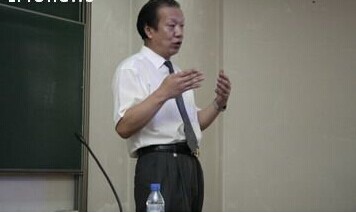ZHENG YU: U.S. “isolation policy” toward Russia hard to sustain

Invited by French President François Hollande, Putin attended the commemoration ceremony of the 70th Anniversary of D-Day landings on June 6. And the U.S. had previously publicly stated that Obama would not have a one-on-one meeting with Putin. The next day, Petro Poroshenko declared victory in Ukraine’s presidential election. In this sensitive context, Putin’s attendance garnered a greater spotlight. Undoubtedly, the interaction between the Russian and American leaders revolving around the Ukraine issue had become a focus of concern.
Its geopolitical position has put Ukraine on a cutting board between Russia and the West throughout history. Earlier this year, Russia secured Crimea by taking a chance during the crisis in Ukraine; the EU, meanwhile, has profoundly come to realize its weakness in terms of military force and energy. The halo of U.S. hegemony also has been dimmed by the reality of the situation.
The slackening of U.S. power in terms of global affairs, particularly its attenuated control over marginalized zones, is accompanying the decline of a great power. The impotence of the U.S. to individually tackle this challenge in global affairs or to take the leading role is indisputable. In contrast, the EU has shown more independence in response to global affairs, and emerging economies hope to have a bigger say.
While Obama called for U.S.-EU relations to be “united and concerted,” what lurks behind such a diplomatic veil is a mutely uncompromising position.
Impacted by the global financial crisis and the European debt crisis, no country would like its relations with Russia to reach this impasse.
Traditional European countries are in urgent need of resuming and intensifying their cooperation with Russia. During these ceremonies, Putin met with Hollande, who was hosting the commemoration, talked with British Prime Minister David Cameron and German Chancellor Angela Merkel, and spoke for a few minutes with the newly elected leader of Ukraine.
According to news reports from Moscow, Putin deliberately discussed with world leaders about potential means to alleviate the Ukraine crisis. These reports indicated that Moscow hopes to seek a solution to re-solve the crisis through international conversations.
The Brussels G7 Summit Declaration’s tough attitude underscores the fact that Putin has taken full com-mand of the Ukraine crisis. Reaching a compromise with Europe could both abate Obama’s influence and benefit the realistic and economic interests of Russia.
EU leaders are aware that in terms of alleviating tensions in geopolitical security in Eastern Europe, Russia acts as an indispensible force.
During an interview, Putin remarked: “When people push the margins too far, it is not out of strength, but on the contrary, out of their weakness.”
Steven Pifer, the former U.S. ambassador to Ukraine who now serves as a senior fellow at the Brookings Institution, said: “Putin may not get to host the G-8 but if he gets to go to Normandy with everybody, it begins to diminish the appearance of isolation.”
More than 20 years since the end of the Cold War, the U.S.-Russia relationship has been one of the crucial factors that influence overall international relations. Tensions between the West and Russia are now on the brink of triggering another Cold War.
However, a closer scrutiny of these relations may show that they are more of a symbolic than realistic significance. Especially after the accession of Crimea into “Russia,” American media frequently mention one phrase—the “new Cold War”—in reporting on strained U.S.-Russia relations.
In my view, U.S.-Russia relations might move toward a period of “cold peace” rather than a “new Cold War”.
Predictably, the U.S. will adjust its foreign policy on Russia in a holistic way. While sustaining necessary cooperation, the two countries will face a situation of more rivalry.
During the period of “cold peace”, containment and anti-containment will become the norm in U.S.-Russia relations. The Ukraine crisis not only tarnishes the image of America as global leader, but also threatens the EU’s confidence in the U.S.
Maintaining a check on Russian power in the region of the former Soviet Union and reining in economic ties between Russia and the EU will become the chief strategic policies that the U.S. will pursue in the future.
No doubt, Russia will not stand aloof from the U.S.’s arbitrarily fanning the flames and stirring up trouble; nor will Moscow allow the infiltration of NATO into Ukraine.
To counterattack the U.S. “isolation policy,” Russia definitely will “look eastwards” by expanding relations with fellow BRICS member China and will resume political and economic ties with traditional European countries.
